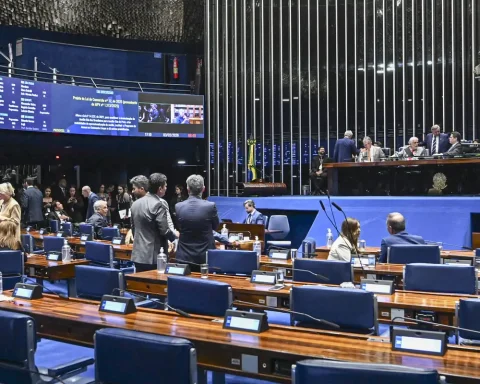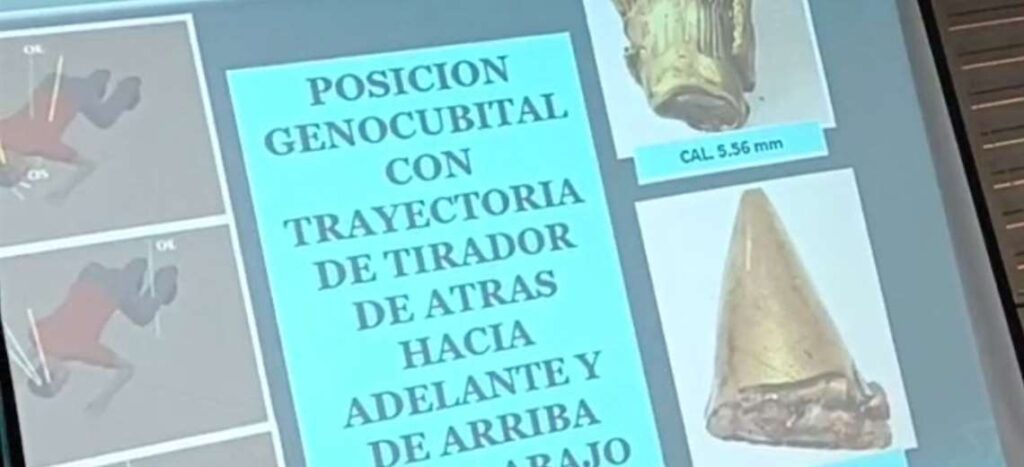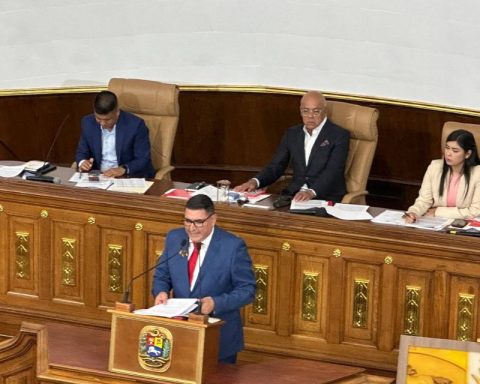Celebrating a trajectory of 50 years, the movement of Associations for the Protection and Assistance to Convicts (APACs) started this evening (22) its 9th congress with the theme “Nobody is irrecoverable”. At the event, which takes place in Belo Horizonte until next Saturday (25), an assessment of this fiftieth anniversary will be made and the challenges of the present will be discussed.
APACs are non-profit civil society organizations that manage prisons where they apply their own methodology, which bets on education and work as tools for the recovery of prisoners. They are articulated in a movement coordinated by the Brazilian Fraternity of Assistance to the Convicted (FBAC).
Among the positive results claimed by the APACs are their better cost compared to traditional prisons, the absence of violence or rebellions and the few escapes. The main indicator used by the movement to gauge its success is low recidivism. According to a survey by the FBAC, 13.9% of prisoners serving time in APAC units commit crimes again, a rate lower than that observed in conventional prisons.
In 2020, a study conducted by the National Council of Justice (CNJ) on criminal recidivism in the country between 2015 and 2019 pointed to a national average of 42.5%. The researchers involved, however, warned that “possibly the value would be higher, if the time cut analyzed were extended”.
seven states
Currently, there are 63 APACs units – between men and women – in operation in seven Brazilian states: Espírito Santo, Maranhão, Minas Gerais, Paraná, Rio Grande do Norte, Rondônia and Rio Grande do Sul. A further 79 are in different stages of deployment. The movement is expanding. “This is the main challenge. Even the interest of the public administration has been increasing. It is necessary to grow with sustainability, maintaining positive results. For that we are investing in new management tools”, says the legal and partnerships manager at FBAC, Tatiana Flávia de Souza.
The movement has Minas Gerais as its main pillar: 46 of the 63 units in the country are in the state. One of the reasons for this scenario is the institutional support of the Minas Gerais Court of Justice (TJMG), which develops the Novos Rumos Program in the area of criminal enforcement: the initiative has as one of its main objectives the mobilization of judges and civil society. for the proper functioning of the methodology and for the expansion of APACs.
In this sense, the choice of Belo Horizonte as the seat of the congress that marks the trajectory of 50 years is not by chance. National and international guests are gathered in the capital of Minas Gerais, including jurists, public managers, representatives of non-governmental organizations, religious leaders and supporters of the APACs methodology. After the opening ceremony of the congress, the beginning of the work received the blessing of the Archbishop of Belo Horizonte and president of the National Conference of Bishops of Brazil (CNBB), Dom Walmor Oliveira de Azevedo.
mutual collaboration
According to Tatiana, the APACs seek to provide conditions for prisoners to create awareness of the mistakes they have made and the harm they have done to society. “Usually, traditional prison systems are focused only on the punitive function of the sentence. We are concerned with providing conditions for social recovery. focus on human valorization and human dignity”, he says.
She explains that this work is managed by civil society in mutual collaboration with the public administration. The APACs movement itself manifests itself against the privatization of the penitentiary system, considering that international experiences in this direction have resulted in negative results. Thus, they defend a model based on partnerships with the courts of Justice and with state governments, which assume the cost of social reintegration centers, as the units administered by the APACs are named.
Norm and rules
There is strict discipline and a council composed of the prisoners themselves contributes to the respect of norms and rules. There is no police presence. During the day, everyone must work and study. Through partnerships, prisoners also have access to psychological and legal assistance. In some states, there are strong partnerships with higher education institutions. The Pontifical Catholic University of Minas Gerais (PUC Minas), for example, has been developing extension projects for years at the APAC unit in Santa Luzia, in the metropolitan region of Belo Horizonte.
Religiosity is present in the development of the methodology. The work of the APACs has its origins in the experience carried out in 1972, in São José dos Campos (SP), by a group of Christian volunteers led by lawyer and journalist Mario Ottoboni. At the time, they started evangelizing activities with the inmates of the Humaitá prison.
According to FBAC, spirituality is ecumenical, that is, prisoners are encouraged to assume the faith they profess and respect for the other’s religion is considered fundamental. In addition, families are called to be involved in the recovery process and participate in formative meetings and celebrations.
critical considerations
The APACs account for a small universe considering the total number of prisoners in the country. According to a survey by the National Penitentiary Department (Depen) of the Ministry of Justice and Public Security, in June last year, Brazil had 673,614 people deprived of their liberty in physical cells and 141,002 under house arrest. Currently, the APACs have the capacity to serve 6,419 prisoners. The units are small and designed to accommodate a maximum of 200 people.
For Isabela Araújo and Isabella Matosinhos, researchers at the Center for the Study of Criminality and Public Security at the Federal University of Minas Gerais (Crisp/UFMG), the experience of APACs develops in the face of negligence by the State management, which should be responsible for access basic rights and for the future social reintegration of the prisoner. In September last year, the two published a critical article in the column that Crisp maintains in partnership with the Justificando platform, focused on the debate in the area of law.
Based on the principle of the secular State, they question the bet on resocialization through faith and the emphasis on the ideology of individual guilt, disregarding social factors. “Given the way it is presented, APAC is now commonly seen as an almost magical management formula for the Brazilian prison system”, they assess.
The researchers also weigh up recidivism rates. They observe that prisoners admitted by the APACs go through a process that involves different stages: they need to express interest, receive the approval of a judge and are interviewed by employees of the desired unit, who finally decide whether or not to accept the request. In this sense, it would be possible to select individuals considered less likely to reoffend.
“It is not known for sure which metric used by officials to choose, only that the family must reside in the district where the unit is installed or that the crime has been committed in that same district. The fact that the APACs do not accept any individual who requests the transfer, even if there are vacancies, points to the existence of some filter. The interviews and the choice are based on subjective impressions, such as the desire to change their lives and the sincerity in adapting to APAC’s ideology”, punctuate .

















